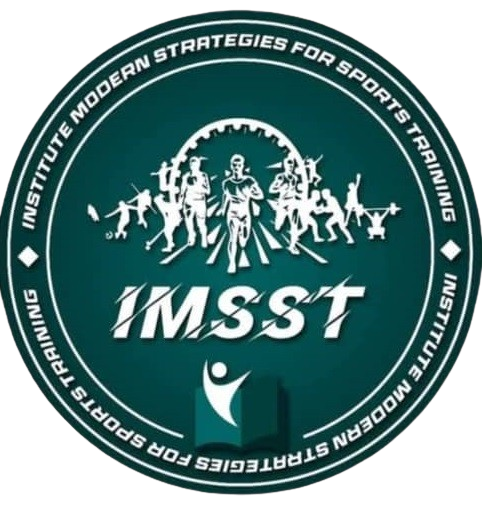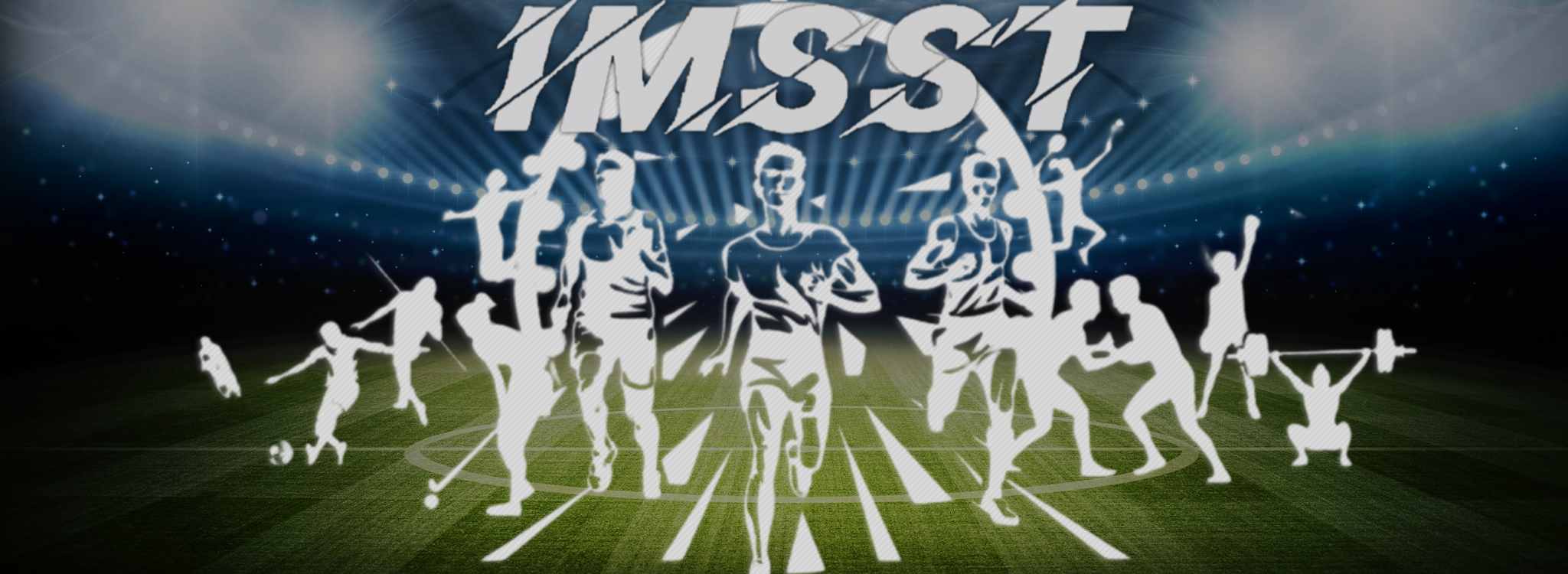Strength and Conditioning Coach, Athletics
This course focuses on the specialized knowledge and practical skills required to develop elite athletic performance in track and field. It’s designed for individuals passionate about maximizing the physical capabilities of athletes, emphasizing the scientific principles of strength and conditioning as they apply to the diverse demands of athletics. This course goes beyond general fitness training, focusing on the specific needs of runners, jumpers, throwers, and combined event athletes.
Course Focus:
Biomechanics of Athletic Movements: Analyzing the mechanics of running, jumping, throwing, and other athletic movements to optimize technique and performance.
Physiology of Athletic Performance: Understanding the physiological demands of various athletic events and how to develop training programs that target specific energy systems.
Strength and Power Development: Designing and implementing effective strength and power training programs tailored to the specific needs of track and field athletes.
Speed and Agility Training: Developing training programs to improve speed, acceleration, agility, and reaction time, crucial for all athletic events.
Endurance Training: Understanding the principles of endurance training and how to develop programs that enhance aerobic and anaerobic capacity.
Periodization for Athletics: Learning how to structure training programs over time to maximize performance at key competitions.
Injury Prevention and Rehabilitation: Understanding common athletic injuries and how to design training programs that minimize risk and facilitate rehabilitation.
Nutrition for Athletic Performance: Understanding the role of nutrition in athletic performance and how to create effective fueling plans for track and field athletes.
Testing and Assessment: Learning how to assess athletic performance through various tests and measurements, including strength, speed, power, and endurance.
Ethical Considerations and Professional Practice: Understanding the ethical responsibilities of a strength and conditioning coach and developing professional practice skills.
What the Learner Will Gain:
Specialized Knowledge of Strength and Conditioning for Athletics: Develop a deep understanding of the scientific principles and practical applications of strength and conditioning for track and field.
Expertise in Program Design: Learn how to create individualized training programs that are safe, effective, and tailored to the specific needs of athletic events.
Skills in Biomechanical Analysis: Gain the ability to analyze athletic movements and identify areas for improvement.
Knowledge of Exercise Physiology and Metabolism: Understand how the body responds to exercise and how to optimize training programs for specific energy systems.
Proficiency in Testing and Assessment: Develop skills in assessing athletic performance and using data to inform training program design.
Understanding of Injury Prevention and Rehabilitation: Learn how to minimize the risk of injuries and assist in the rehabilitation process.
Knowledge of Sports Nutrition for Athletics: Understand the nutritional needs of track and field athletes and how to create effective fueling plans.
Enhanced Communication and Interpersonal Skills: Develop strong communication skills to work effectively with athletes and coaches.
Career Opportunities: This course can open doors to various career opportunities in professional track and field, collegiate athletics, and private training facilities.
Increased Earning Potential: Specialized strength and conditioning coaches are in high demand in athletics.
By participating in this course, learners will be equipped to become highly effective strength and conditioning coaches, contributing to the success of track and field athletes at all levels. They will become sought-after experts in the field of athletic performance enhancement, capable of making a significant impact on the lives of their athletes.
Sports Physiotherapist
A course in Sports Physiotherapy focuses on the specialized skills and knowledge required to prevent, assess, treat, and rehabilitate sports-related injuries. It equips individuals with the ability to optimize athletic performance and facilitate a safe return to sport. This course delves into the intricate relationship between biomechanics, physiology, and sports-specific movements, enabling learners to provide targeted and effective interventions.
Course Focus:
Advanced Anatomy and Biomechanics: In-depth study of musculoskeletal anatomy and biomechanics related to sports injuries.
Sports Injury Assessment and Diagnosis: Developing skills in conducting thorough physical examinations and interpreting diagnostic imaging to accurately diagnose sports injuries.
Manual Therapy Techniques: Mastering a range of manual therapy techniques, including joint mobilization, soft tissue release, and manipulation, to address musculoskeletal dysfunction.
Exercise Prescription and Rehabilitation: Designing and implementing individualized exercise programs to restore function, strength, and flexibility following sports injuries.
Electrotherapy and Modalities: Understanding the principles and applications of electrotherapy and other modalities, such as ultrasound and laser therapy, in sports injury management.
Sports-Specific Rehabilitation: Developing rehabilitation programs tailored to the specific demands of different sports, considering factors such as movement patterns, energy systems, and competition requirements.
Injury Prevention Strategies: Learning how to identify risk factors for sports injuries and develop preventative strategies, including pre-participation screening and functional movement assessments.
Performance Enhancement: Understanding how to utilize physiotherapy principles to optimize athletic performance, including improving movement efficiency and reducing the risk of injury.
Sports Psychology and Communication: Developing effective communication and counseling skills to work with athletes, coaches, and other healthcare professionals.
Ethical and Legal Considerations: Understanding the ethical and legal responsibilities of a sports physiotherapist, including informed consent, confidentiality, and professional boundaries.
What the Learner Will Gain:
Expertise in Sports Injury Management: Develop specialized knowledge and skills in the prevention, assessment, treatment, and rehabilitation of sports injuries.
Advanced Clinical Skills: Gain proficiency in manual therapy techniques, exercise prescription, and other physiotherapy interventions.
Understanding of Sports-Specific Rehabilitation: Learn how to design rehabilitation programs tailored to the specific demands of different sports.
Skills in Injury Prevention: Develop the ability to identify risk factors for sports injuries and implement preventative strategies.
Knowledge of Performance Enhancement: Understand how to utilize physiotherapy principles to optimize athletic performance.
Improved Communication and Interpersonal Skills: Develop strong communication and counseling skills to work effectively with athletes and other healthcare professionals.
Ability to Work in a Multidisciplinary Team: Learn how to collaborate with other healthcare professionals, such as doctors, coaches, and strength and conditioning specialists.
Career Opportunities: This course can open doors to various career opportunities in professional sports, sports medicine clinics, hospitals, rehabilitation centers, and private practice.
Increased Earning Potential: Sports physiotherapists are in high demand, particularly in professional sports and private practice.
Ability to Make a Real Difference: Help athletes recover from injuries, return to sport, and achieve their performance goals.
By participating in this course, learners will be equipped to become highly skilled and sought-after sports physiotherapists, contributing to the health and performance of athletes at all levels. They will become experts in restoring function, preventing injuries, and optimizing athletic potential.
Sports Injury Treatment and Rehabilitation
This course provides a comprehensive understanding of the principles and practices involved in the effective treatment and rehabilitation of sports injuries. It’s designed for individuals seeking to specialize in helping athletes recover from injuries, regain their functional capacity, and return to their sport safely and effectively. This course goes beyond basic injury management, focusing on the specialized techniques and protocols required for optimal recovery in the athletic population.
Course Focus:
Principles of Injury Healing: Understanding the physiological processes involved in tissue healing and repair.
Assessment and Diagnosis of Sports Injuries: Developing skills in conducting thorough physical examinations, interpreting diagnostic imaging, and accurately diagnosing sports-related injuries.
Acute Injury Management: Learning about the immediate care of sports injuries, including the application of RICE principles (Rest, Ice, Compression, Elevation) and other acute management techniques.
Rehabilitation Principles and Protocols: Understanding the principles of rehabilitation, including progressive loading, functional exercises, and return-to-sport criteria.
Manual Therapy Techniques for Sports Injuries: Mastering a range of manual therapy techniques, such as joint mobilization, soft tissue release, and manipulation, to address musculoskeletal dysfunction.
Exercise Prescription for Rehabilitation: Designing and implementing individualized exercise programs to restore strength, flexibility, proprioception, and functional capacity.
Modalities in Sports Injury Rehabilitation: Understanding the principles and applications of various modalities, such as electrotherapy, ultrasound, and laser therapy, in injury management.
Sports-Specific Rehabilitation: Developing rehabilitation programs tailored to the specific demands of different sports, considering factors such as movement patterns, energy systems, and competition requirements.
Return-to-Sport Testing and Criteria: Learning how to assess an athlete’s readiness to return to sport and establish appropriate return-to-sport criteria.
Psychological Aspects of Sports Injury Rehabilitation: Understanding the psychological impact of sports injuries and developing strategies to support athletes during the rehabilitation process.
Prevention of Re-injury: learning how to create programs that reduce the risk of future injuries.
Ethical and Legal Considerations: Understanding the ethical and legal responsibilities of professionals involved in sports injury treatment and rehabilitation.
What the Learner Will Gain:
Expertise in Sports Injury Treatment and Rehabilitation: Develop a comprehensive understanding of the principles and practices involved in the management of sports injuries.
Advanced Clinical Skills: Gain proficiency in assessment, diagnosis, manual therapy, exercise prescription, and the use of modalities.
Understanding of Sports-Specific Rehabilitation: Learn how to design rehabilitation programs tailored to the specific demands of different sports.
Skills in Return-to-Sport Testing and Criteria: Develop the ability to assess an athlete’s readiness to return to sport and establish appropriate criteria.
Knowledge of Psychological Aspects of Sports Injury Rehabilitation: Understand the psychological impact of sports injuries and develop strategies to support athletes.
Improved Communication and Interpersonal Skills: Develop strong communication and counseling skills to work effectively with athletes and other healthcare professionals.
Ability to Work in a Multidisciplinary Team: Learn how to collaborate with other healthcare professionals, such as doctors, coaches, and strength and conditioning specialists.
Career Opportunities: This course can open doors to various career opportunities in sports medicine clinics, hospitals, rehabilitation centers, professional sports teams, and private practice.
Increased Earning Potential: Professionals specializing in sports injury treatment and rehabilitation are in high demand.
Ability to Make a Real Difference: Help athletes recover from injuries, return to sport, and achieve their performance goals.
By participating in this course, learners will be equipped to become highly skilled and sought-after professionals in the field of sports injury treatment and rehabilitation, contributing to the health and performance of athletes at all levels. They will become experts in restoring function, preventing re-injury, and optimizing athletic potential.

